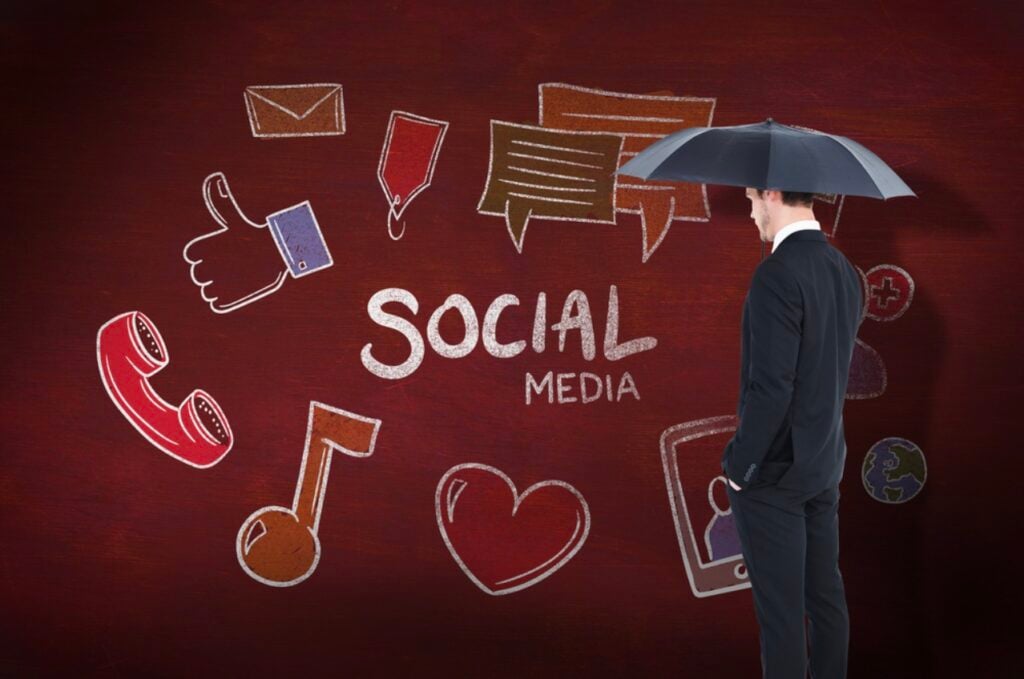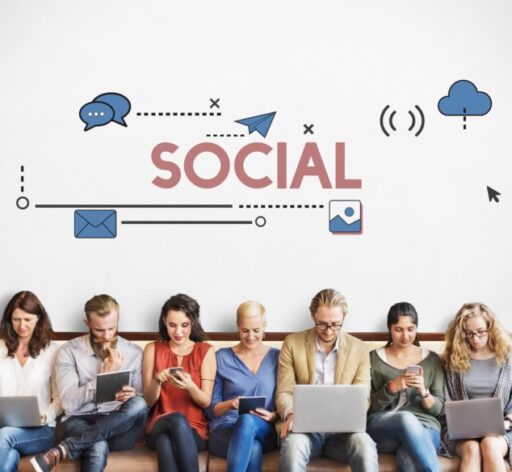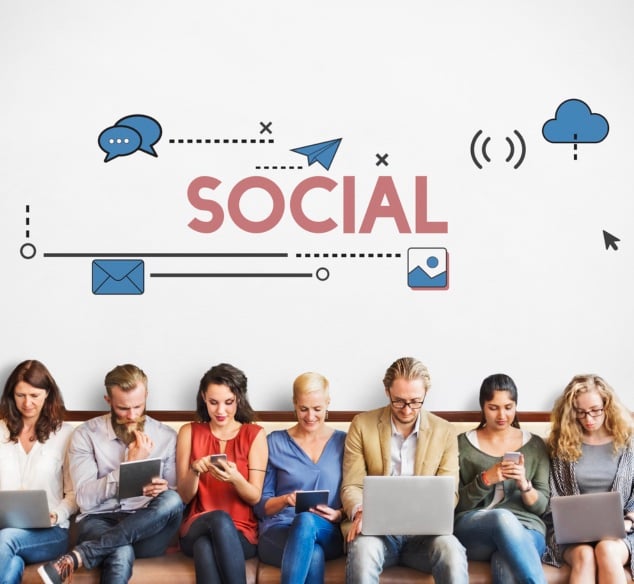Have you ever thought about how social media affects your life? On average, we spend approximately 2.5 hours on these platforms each day. It might not sound like a lot, but this kind of daily engagement can lead to various mental and physical health issues. Moreover, many people utilize editing tools to enhance their photos and hide imperfections. For instance, an image upscaler can boost your photo quality and make it more vibrant, while beautifying tools can completely change your appearance. Social media contributes to the development of such solutions due to increased emphasis on visual impeccability.
Of course, social networks’ influence on people’s lives can also be positive. This article is here to help you understand all these psychological aspects. Keep reading to learn more!
The positive and negative impact of social networks on people’s lives
Social media is a readily accessible source of dopamine. This neurotransmitter is responsible for generating feelings of happiness and euphoria. In contrast, obtaining this neuromodulatory molecule in our everyday lives typically requires some effort. For example, it might involve completing a week-long project or investing time in preparing a delicious meal.
In an article for The Guardian, Dr. Anna Lembke, an expert in addiction, argues that social media effectively turns people into dopamine addicts, as it provides a quick and easy path to these pleasurable sensations. This phenomenon can be especially challenging for individuals with attention deficit disorder (ADHD); they struggle to concentrate on complex tasks needed to trigger their own happiness hormone.
Negative aspects

Although online platforms allow people to take a break from their routine problems, it’s necessary to be aware of negative social media influence. The issues lie in bad feelings individuals often get from browsing comments and posts. The online realm also offers an easy way to manipulate a person’s mindset. For example, bloggers often present an idealized image that can frustrate ordinary users, instilling feelings of inadequacy, insecurity, and low self-esteem.
The psychological impact of the use of social networks by young people can be even more complex. That’s because their prefrontal cortex, responsible for emotional control, can’t fully mature to handle such information overload. Based on recent scientific research, the Daily Mail states that young people experience higher risks of mental disorders, such as depression, anxiety, feelings of isolation, and self-harm thoughts if they spend more than three hours on social media.
Social media also serves as a platform for spreading fake news. This is another way of manipulating public consciousness, resulting in people making misguided decisions in both the political and personal spheres of life. A lot of social media information appears fake. Massachusetts Institute of Technology analyzed 120,000+ news on X (Twitter) and found that 70% of users are more likely to repost false news.
FAQ: What are the negative impacts of social networks on personal life?
Increased time spent on social media can lead to social anxiety and depression. Moreover, such platforms are highly addictive; they prevent people from solving necessary routine tasks. People’s mental health can be ruined on social media because of constant comparisons, cyberbullying, and fostering a culture of superficial connections.
Positive aspects

Every negative aspect has a flip side. Despite the downsides, social network’s influence can also be positive. Thanks to technological advancements, people across the globe can connect, share their thoughts, and find kindred spirits. After all, these are the key elements of a thriving global community.
Given the backdrop of geopolitical crises, it is especially vital for citizens from all countries to take an active role in the political affairs of their nations. According to Pew Research Center, online networking is a great way to increase civic engagement. The research shows that 66% of American social media users take part in political activities on these platforms. People encourage others to vote or show support through liking, sharing, posting, and commenting.
In addition to political issues, society constantly grapples with global concerns such as inequality and environmental conservation. Maryville University found that social media contributes to social change by raising awareness of important issues and motivating users to take action. For example, significant movements like #MeToo and #BlackLivesMatter were promoted through social networks. That’s why the impact of social networks on society is unconditional.
FAQ: What are the positive impacts of social networks on society?
Social media can reduce feelings of isolation by connecting people across the world. These platforms also make information sharing more efficient, resulting in raised awareness of social and political issues.
Tips to eliminate the negative impact of social networks

Balance is key. Given the close connection between mental health and social networks, it’s important to be able to manage your time online wisely. The following tips can help you free up more time for important matters and minimize the negative impact of online interactions:
- Remove social media applications from your home screen. Since this feature won’t be at your fingertips, you can minimize the number of visits to social media.
- Determine clear intervals for checking social media. It’s a good idea to limit your social media sessions to 30 minutes. This way, you’ll have more time to be productive at work instead of getting lost in endless scrolling.
- Activate the “Do Not Disturb” mode on your smartphone. By doing so, you’ll also avoid the notifications that often prompt our brains to check for updates.
- Don’t compare your life with others. It’s common to feel like others are leading perfect lives, but that’s far from the truth. Everyone faces challenges, but some only present their ideal image online.
- Control your privacy settings. Unpleasant comments from certain users are often driven by a desire to release their negative emotions online. You can control the audience that sees your content and interacts with you.
- Take a social media detox. Not using social media at all is a good way to give your brain a break from information overload. For example, you can do this detox for 30 days.
FAQ: What are the impacts of social networks on society?
Social media influences society in positive and negative ways. The key advantages are sourcing relevant information, building relations with groups of like-minded people, and high engagement. The negative aspects are disinformation, mental disorder risks, and inferiority complexes.
FAQ: What are the positives and negatives of using social media?
Social media helps people stay connected with friends and family, serves as an additional source of valuable information, facilitates professional networking, and drives self-expression. Nonetheless, it also has its downsides, like addiction, online harassment, connection to mental health problems, and the spread of misinformation.
To sum up
The impact of social networks on people’s lives is indisputable. These online platforms revolutionized the way individuals communicate with each other. Nowadays, you can connect with friends and discover like-minded individuals from anywhere. Nevertheless, social media also exerts a negative influence on people’s lives and society as a whole, causing mental health problems and misinformation.






